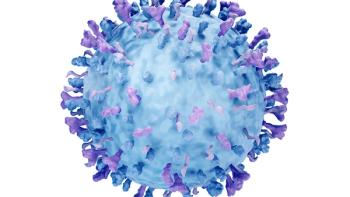
FDA Issues EUA for COVID-19 Monoclonal Antibody Treatment
When administered together in clinical trials, casirivimab and imdevimab were shown to lessen COVID-19 hospitalization or emergency room visits in patients at high risk for disease progression within 28 days after treatment when compared to placebo.
On Nov. 21, 2020, FDA issued an emergency use authorization (EUA) for casirivimab and imdevimab for the treatment of mild to moderate COVID-19 in adults and pediatric patients with positive viral test results who are at high risk of progressing to severe COVID-19.
When administered together in clinical trials, casirivimab and imdevimab were shown to lessen COVID-19 hospitalization or emergency room visits in patients at high risk for disease progression within 28 days after treatment when compared to placebo, an FDA press release said. The monoclonal antibody combination is not permitted for patients who are already hospitalized for COVID-19 or require oxygen therapy because of the disease.
“The FDA remains committed to advancing the nation’s public health during this unprecedented pandemic. Authorizing these monoclonal antibody therapies may help outpatients avoid hospitalization and alleviate the burden on our health care system,” said FDA Commissioner Stephen M. Hahn, MD, in the press release. “As part of our Coronavirus Treatment Acceleration Program, the FDA uses every possible pathway to make new treatments available to patients as quickly as possible while continuing to study the safety and effectiveness of these treatments.”
“The emergency authorization of these monoclonal antibodies administered together offers health care providers another tool in combating the pandemic,” said Patrizia Cavazzoni, MD, acting director of the FDA’s Center for Drug Evaluation and Research, in the press release. “We will continue to facilitate the development, evaluation, and availability of COVID-19 therapies.”
Source:
Newsletter
Stay at the forefront of biopharmaceutical innovation—subscribe to BioPharm International for expert insights on drug development, manufacturing, compliance, and more.




